Rolls-Royce is considering swapping from conventional batteries to hydrogen fuel cell powertrains for its future electric cars once the technology is mature enough to be commercialised at scale.
The new Rolls-Royce Spectre – which made its European debut at Villa d’Este in Italy last week – is the Goodwood firm’s first EV and will enter production in September with one of the largest batteries fitted to any production car, at 120kWh.
It has a claimed range of more than 300 miles and charges rapidly at 195kW. However, CEO Torsten Müller-Ötvös says the unique positioning of a Rolls-Royce, and the specialised use case of the average owner, opens up the possibility of considering hydrogen as an alternative fuel in the future.
Read more: Rolls-Royce Spectre review
Speaking to Autocar at the Spectre’s debut, Müller-Ötvös responded to the suggestion that hydrogen combustion technology of the sort touted by JCB and Toyota might suit his firm’s large, heavy luxury cars – renowned in part for their silky V12 engines.
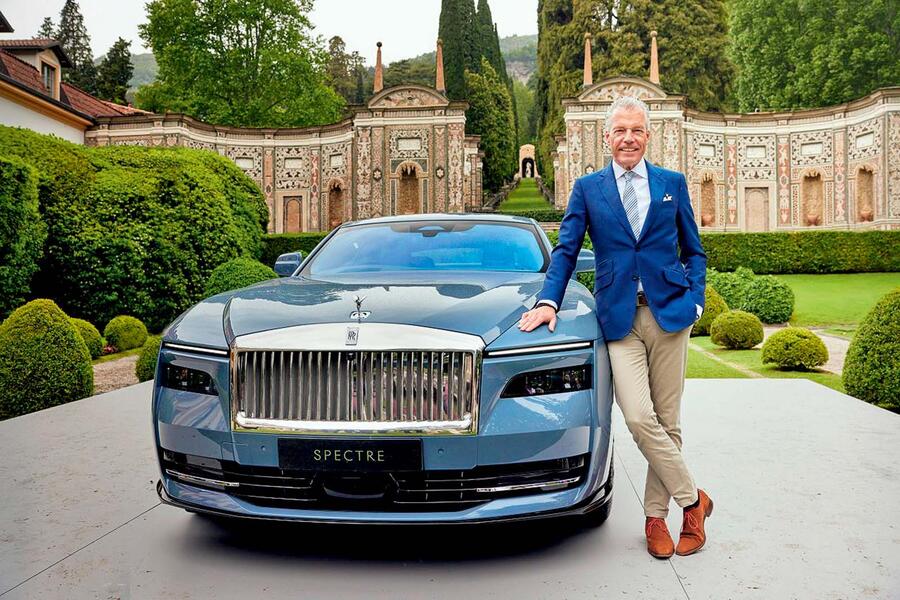
“I think a hydrogen combustion engine is nothing I would in any way look into, because that was tested already years ago,” he said, recalling that parent company BMW trialled the technology in the early 2000s with a specially adapted 7 Series.
“This is not the most efficient way to use hydrogen,” he added. “If hydrogen will be used in the future, then it’s fuel cells. And fuel cells are nothing different from a battery. It is just how you get the energy.
“And why not? I would say so when the time is right for us, and when the technology is so much advanced, that it is definitely something we would pursue as Rolls-Royce. Why not? We might exit batteries, and we might enter into fuel cells.”
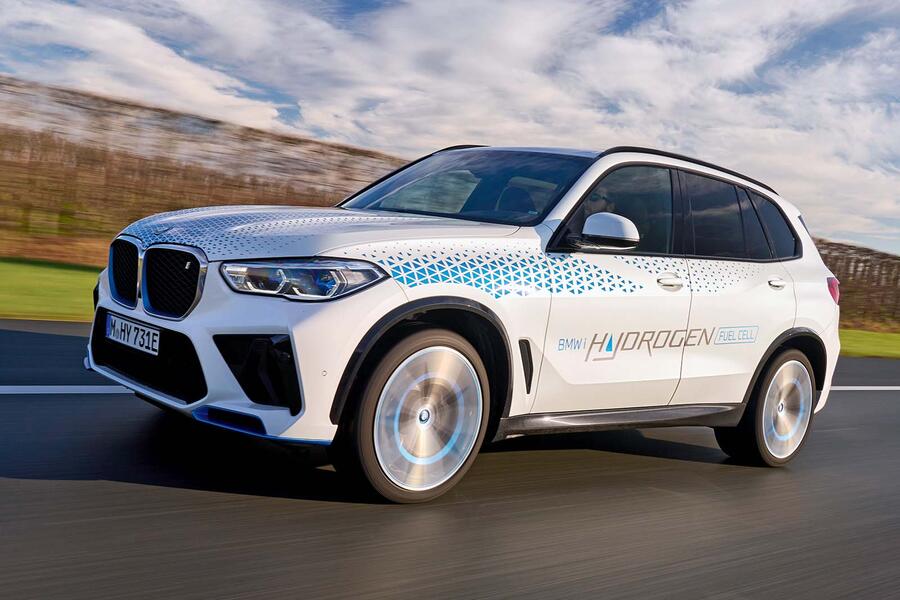


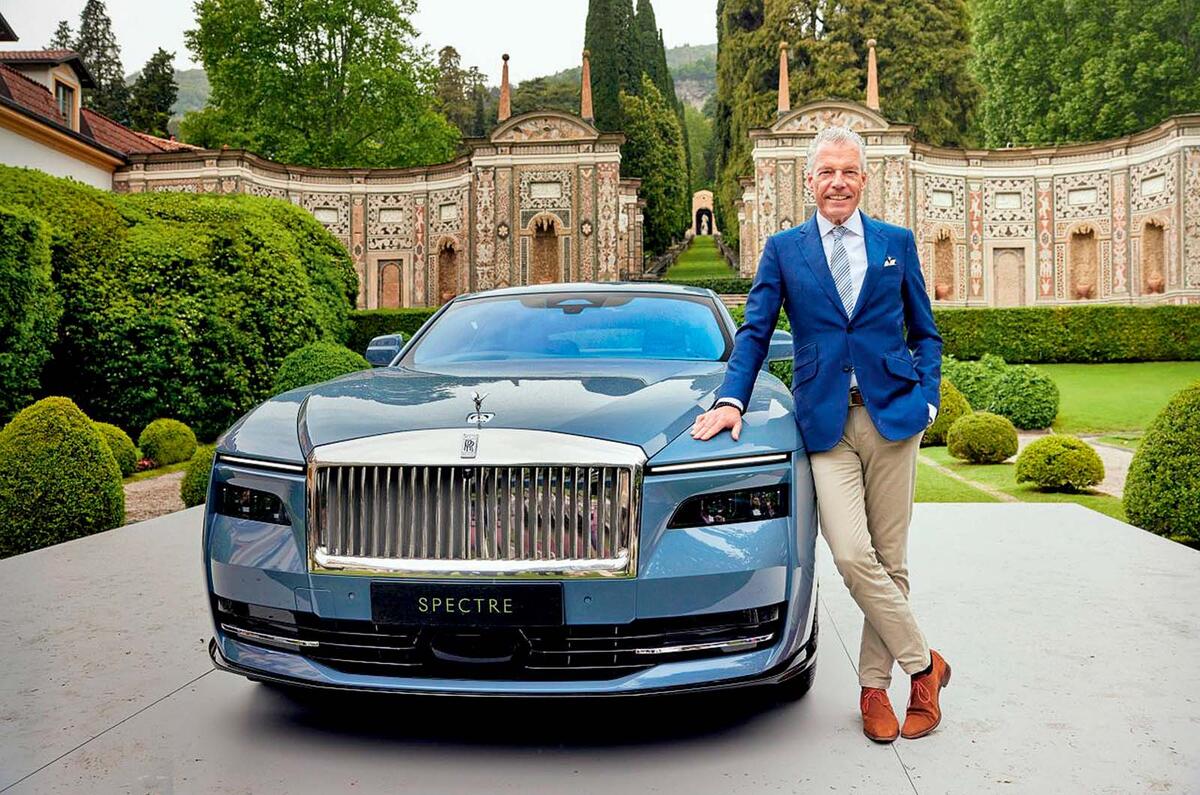
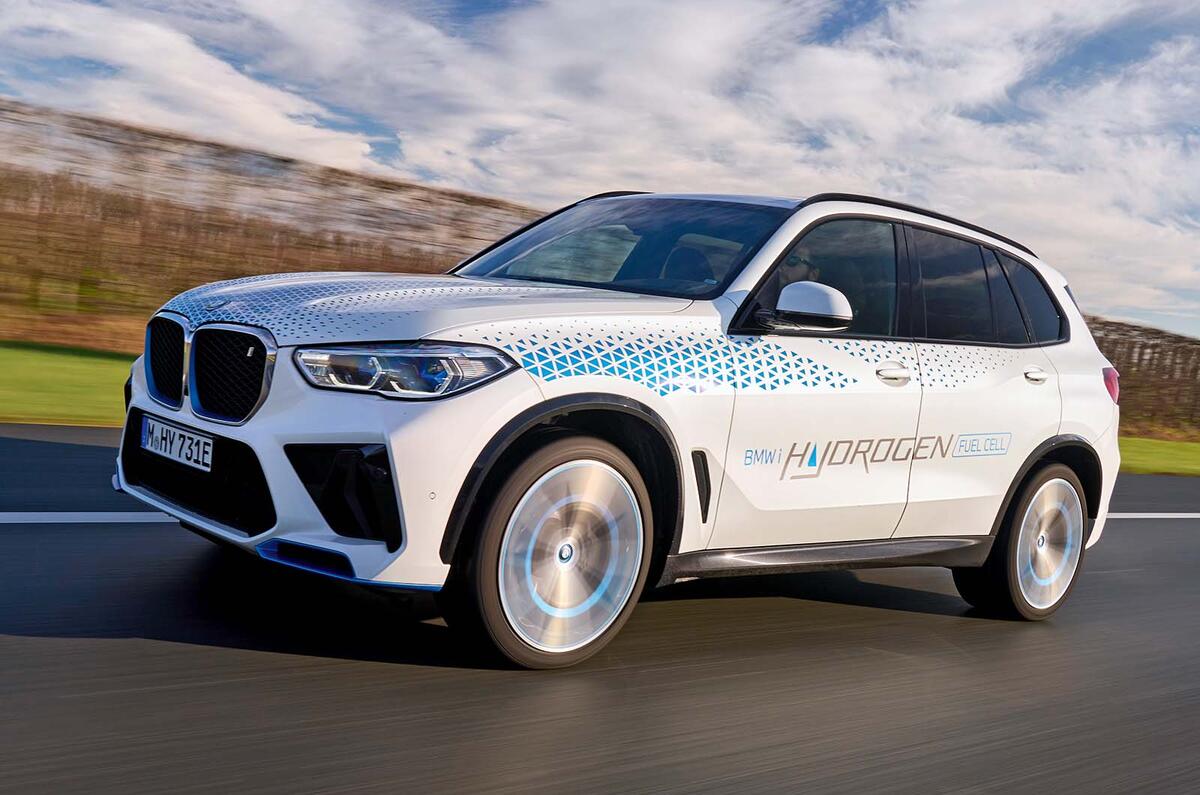
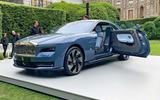








Join the debate
Add your comment
BMW has changed directions on the post-fossil-fuelled future numerous times in the past. First sodium-sulphur EVs in the '90s, which needed to be kept in a continuously molten state so presented a fire risk. Then hydrogen combustion engines in the 2000s with the V12 Hydrogen 7, but it couldn't be parked indoors, and had less range, lower performance, far higher running costs and in many cases a higher CO2 footprint than simply running the engine on petrol. Then compact lithium-ion EVs in the early 2010s, but using small cars and a nascent cell chemistry meant that they couldn't fit large enough battery packs to give decent range. Then they entered a hydrogen fuel cell co-development programme with Toyota, but it's yet to bear fruit after ten years, and will be a very low-volume run when it does, so won't do a lot for their fleet emissions. And now they're developing large-batteried, high-end electric versions of most of their models.
So the current state of things at BMW is that they have an enormous sunk cost into each of the major fuel types. They'll keep all options open until they can rule them out *for sure*.
But the statement doesn't really make much sense for Rolls. If their cars are *all* garaged, and the vast majority of their journeys are short, what's the sense in hydrogen over electric? As Torsten says in the article, you can't fill up an FCV while it's parked at home. There are two advantages to hydrogen: 1, faster refuelling times (roughly equivalent to 1,100 kW charging, assuming the pump doesn't need to thaw or repressurise after previous users). 2, it adds less weight and cost to increase the range beyond a certain point. So if Rollses aren't typically going far enough to need en-route charging, and they're all land-yachts anyway, what's the point?
...Whereas you *can* maybe see some sense in hydrogen combustion, to preserve the V12. Admittedly it's a V12 that does its absolute best to mimic the characteristics of an electric motor, but this is a brand that's all about tradition and elaborate bespoke craftsmanship. BMW's corporate stance is that they've been burned on hydrogen combustion, but the penalties to cost, performance and energy use are less relevant to Rolls customers, and the indoor flammability issue doesn't need to be the case if they use gaseous hydrogen rather than liqueous. It would still be dumb, but you'd see the reasoning behind it.
Not sure why there seems to be a downer on hydrogen, it will work, it just needs the renewable powered infrastructure and local storage facilities to make it viable. It's got to better that digging up and disposing of lithium, in the long run I think hydrogen will be used.
There's a downer because, for cars at least, it has no future.
It's 3 times less efficient than a pure BEV and that alone is a big enough reason. It's at least twice the initial purchase price, tanks are big and an awkard shape, doesn't scale down well, virtually no where to fill up, stations are expensive to build and maintain, and the one secret very few people know about, open the fuel flap and see what it says.
Oh digging up lithium, most of it comes from sea water. Anyway what about the issue of digging up billions of barrels of oil.
Hydrogen is made from water, there isn't much else to do, and as I've said, local renewable energy is the key, not pissing off the planet is the crucial issue. Lithium just another form of oil, we need to stop carrying on as if we can afford to suit ourselves, perhaps we need to put our ultimate survival as a species before anything else, no point chasing efficiency if we all perish trying to achieve it, that's what got us to this point in the first place, vested interests kicking cans down the road because it was easier to keep the gravy train rolling (The mining industry to name one such vested interest). To my way of though there is nothing more simple that sticking electricity into water and you get water back out of the tailpipe after you completed your journey, not tons of alkali metal that we then have to dispose of.
'hydrogen is made from water, there isn't much else to do' Emmmm. oh well I'm surprized we don't just put water in all those hydrogen car tanks.
You can get a tank of any kind, though you will need some electrical insulation if it is a metal tank, some electrical wire, connect the wire to to a DC power source (battery or individual cells) and place the wires into the water and you are pretty much done, you will elicit oxygen as well as a useful byproduct from one of the wires (electrodes are what they are technically known as) that is also an explosive gas and that will relight a glowing splint iirc from my chemistry classes. Make sure you do this in a well ventilated area.
So why isn't it happening? Is it a conspiracy led by big lithium?
Yep, for cars at least always has been and always will.
Might be a good idea not to comment where you need to, you know, know stuff about things ;-)
You better keep quiet then. Shhhhh
Autocar clutching at straws aboiut hydrogen again.
You need electricity to produce the hydrogen to put into a fuel cell to make electricity.....